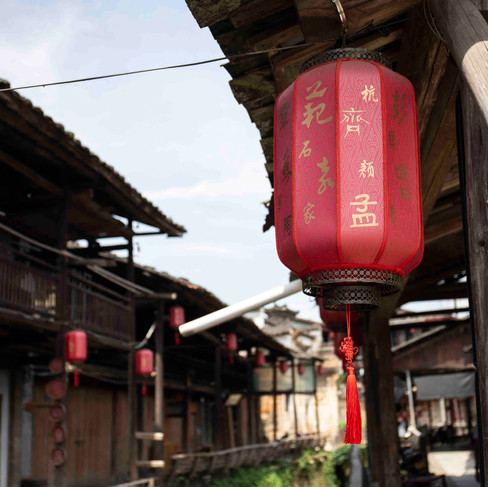Club Gathering Log #05 | Online Event: 03,05.3.2023

Welcome to the Winter 2023 edition of Blind Tasting Club 2023. It was exciting to share with you the stories and flavors behind our carefully curated selection of five winter teas from Fujian province and Taiwan. Our focus was to find unique and rare teas that are not typically available when visiting a plantation in the search of fresh batches. This time we used our connection and literally made phone calls to farmers and tea collectors to reach more far and grab something different. We hope you enjoyed these teas as much as we did in the process of selecting them.
This tea uses an ancient cultivar Shi Ru 石乳 from the Song dynasty that was almost forgotten until recently became trendy again. Until few years ago it used to be blended with Da Hong Pao, but this batch is a single bush traditional version of the tea. 30 Years old trees grown in Da Wang Feng 大王峰, a place considered "zheng yan" - full rock tea.
Tasting Notes: Citrus, Red Grapes, Candle Wax
Made in the traditional Zheng Wei method suitable for aging, this incredibly rare batch of tie guan yin was sourced through our connections in Xiping town. Picked in the early 2000s, it has been awakened after a long sleep of over 20 years and be baked especially for our club. It can be further aged in its vacuum-sealed package or a suitable container. This tea is one of three special grades TGY we brought this year to celebrate 300 years of TGY. Stay tuned you TGY lovers.
Tasting Notes: Plum, Jam, Raisins, Cocoa
#3: Green Jade 2020 – Taiwanese Yellow Tea
Another rare tea-making, this time from Nantou, Taiwan. A strictly organic batch from a small farm growing the No.13 cultivar 翠玉 cui yu (green jade), having a unique fresh umami taste in layers of complexity that reminds us the experimental Sheng from Upper Assam aka Tea #1 from the Indian special BTC-03. This tea was chosen mainly for educational purposes, but surprised us all with its popularity among clubbers we consider stocking it after all. For now it isn't available for sale.
Tasting Notes: Bamboo, Artichoke, Seaweed
Won the 'most unique tea' award 🏅
Originally from Tong Mu Village, "original" Jin Jun Mei draws such a high demand among foreigners, many people believe this tea is "fake" when originated from a different place. In fact, in China, JJM definition is determined by the craftsmanship and its origin must be from Wuyi Shan, especially concerning an historic and important town as Xia Mei, which is located 5km away from the zheng yan area. Same rule applies to yan cha. The buds of JJM are picked and rolled by hand, then baked traditionally by charcoal, again, like yan cha.
Tasting Notes: Wild Honey / Nectar, Cranberries, Fruit Jelly
An unusual category of tea, also known as Striped Red, is more of a trendy experiment with gaoshan raw material in terms oxidation, rolling and aging. Picked on altitude of 1,700m in sustainable conditions, this exceptional tea is totally natural and pesticide free.
The story behind this tea is fascinating. We initially chose a different batch that was later told is sold out, so the farmer sent us samples of all his aging attempts from the past few years in apology for the mistake. This striped gaoshan red tea (high mountain black tea) is still considered an experiment, as the farmer continues trial and error with different cultivars, aging conditions, baking, etc. Eventually we chose this batch exclusively over the other batches, and we like it even better than the one we chose initially.
Tasting Notes: Maple Syrup, Dried Apples, Chocolate
Won the 'favorite tea' award among the clubbers 🏆
We hope you enjoyed this winter's selection of teas and learned something new about the unique flavors and origins of each tea. Our next Blind Tasting Club will take place in Summer 2023, as it will be our first Summer club sampler. 🌻 Until then, stay warm and drink tea!









Commentaires